Frederic Thoraval is the Oscar nominated editor of Promising Young Woman. A film which is provocative, contentious and offers no apologises. Sharply written, precisely constructed and wearing its agenda with pride, this film should be mandatory viewing. It is starkly prescient, savagely insightful and never spares the rod.
As editor on this project Frederic had a front row seat, helping shape a film with no fat to spare. Lean, poised and unrelentingly direct, Promising Young Woman packs a punch and delivers through until that final frame. A fact that came up in conversation with Martin Carr, when Frederic took time out recently to discuss it in more depth.
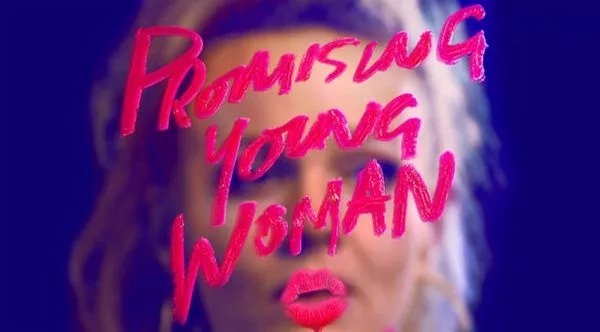
Prior to the editing process, what creative conversations did you have with Emerald?
Very few, because I had just an interview with her which was more a chat about movies than anything formal. We got along very well and she had a very clear view of anything linked to Promising Young Woman. Alongside the script, Emerald sent everyone a very detailed mood board packed with visual references, as well as a playlist of songs. Something which only made her vision stronger for all the people involved.
This is a powerful film which has provoked some strong reactions. What feelings did it illicit from you personally?
This film was constantly in my mind throughout the process. When I am editing, I tend to put a lot of myself in the work, in terms of identifying with these people. Especially male characters, like the one portrayed by Christopher-Mintz Plasse, who has posters on his wall and that dreamer catcher dangling. You can’t help but start to question how much you are like these people. The more we dug into the film the more it raised questions about those things that tend to be ignored. The joke is how Emerald takes those situations and then subverts them, strengthening the point she is trying to put across.
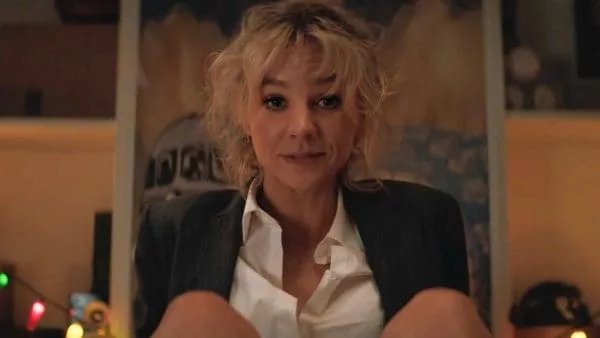
How important was it to you, that these characters remained the wrong side of relatable and how you maintained that through the editing process?
From the get go I really connected to this quest for redemption which is in this movie. I really liked the fact that throughout this film Cassie is just trying to get people to acknowledge what happened. Something they have a real problem doing, because none of them feel their behaviour was wrong.
An hour in Promising Young Woman briefly turns into a rom-com for ten minutes. Is it there to wrong foot the audience?
I think Emerald is trying to wrong foot the audience all the time. She starts with that rom-com feel in the car with Adam Brody, which leans more towards horror as we go on, before switching back to rom-com again as soon as Ryan comes into her life. Then there are the thriller elements she has with Madison’s character, so Emerald is playing with those genres all the time. Therefore, when you arrive at the rom-com explosion that intimate connection between Cassie and the audience pays off. From that point on audiences are hopefully prepared to follow her on the emotional rollercoaster which follows.
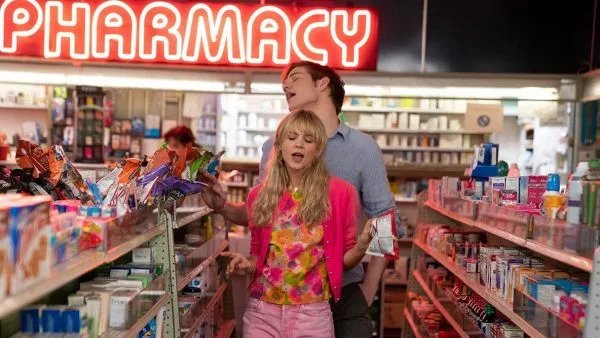
I think it’s important the audience needs to accept it, but not necessarily condone it. I think that it’s a really clear distinction to make and something the film does so cleverly.
That is why it’s so important to have that moment, because audiences need to really connect with her and see things from her perspective.
The pivotal cabin sequence feeds into many of the central themes of Promising Young Woman. How did you approach this particular scene in the edit?
This sequence is one of the reasons why I really fell in love with the script. It is very powerful and is a culmination of the themes being addressed in this movie. What I love about this film is the uncertainty of what you will see minute to minute. Slowly the audience is able to piece together what happened. The cabin scene is so good because it provides so many answers, but does so in such a horrible moment. It is an astonishing twist, but one which only makes what follows more emotive.
The way Emerald envisioned that was very clear. I had the chance to work with a very brilliant writer director with very specific ideas. When I was talking about the mood board at the beginning, this moment was very clearly set up like that. As a scene it is bold, unusual and very complex. But that was the intention from the outset and a creative path was there for everyone. Our job was to help Emerald realise this on screen. This was not a film you could play around with structure and swop things around, because everything had its place. The excitement on this film was finding the best way to stay within these clearly defined creative constraints, in order to create that emotional connection with Cassie.
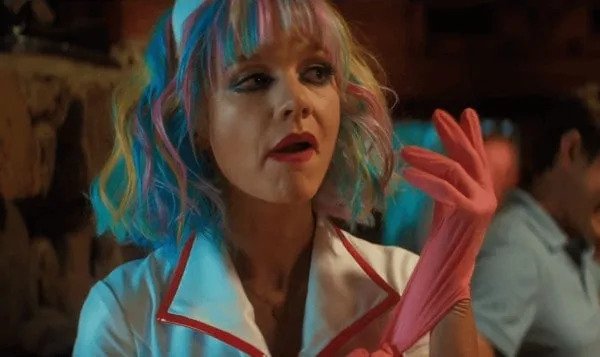
That was one thing I noticed having rewatched it again. There is no fat on this film, by which I mean no wasted scenes or needless exposition at all.
This was a film shot in twenty-three days with three weeks of prep. When you put that timeline up against the complexity of this shoot, you realise things were changing almost every day. Every day in the cutting room there would be a new scene, with someone who you might meet for just that moment. Alongside the importance of story comes that music and those songs which formed this film’s DNA. You can’t take any of that out because it’s not the same movie. Juggling all those elements was a central challenge, but we used everything in an effort to achieve Emerald’s vision.
This film is made for a contemporary audience, addressing issues which are happening now. It was essential that every creative element on this film worked together. From my perspective, it was obvious that every single department was working towards the same thing on this project. In the cutting room Cary Mulligan was my north star, but everyone was bringing something to the story. What I found amazing about Emerald, is that even though she wrote every word of that script, she wanted the movie to work and recognised that things would evolve. We were able to work freely with her and try things, which might not work, but would ultimately help to make this movie.
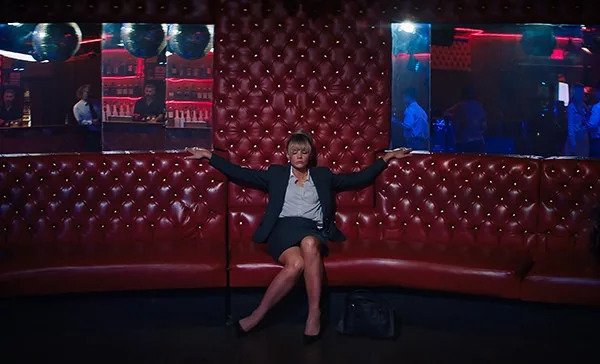
Historically, directors and editors have worked closely together, where do you see yourself in the story telling process?
I think I am a midwife. I am here to help; most of the time for nine months to help a director give birth to a movie. It is a very fragile moment and I try to be inside the head of a director throughout this process. Trying to connect as much as possible with what they want to do, as well as the story they want to tell. Within my job I love to discover new worlds and new universes every time, which is exactly what happened with Emerald. At the same time, I like to work in lots of different types of films and cultures, because I have learned something new every time. Harrison Ford gave the best creative explanation of the editing process I have ever heard, in which he said the film tells you what to do. When you force it, the film doesn’t work and you can tell on screen.
Describe for me your perfect Sunday afternoon, what do you like to do?
I like to disconnect from work. I like to be outside with book, in the sun and an iced latte. Purely because in a way I don’t have many of those moments. Which means when they happen it’s really precious.
Promising Young Woman is available to stream on Sky Cinema now.
Many thanks to Frederic Thoraval for taking the time for this interview.


